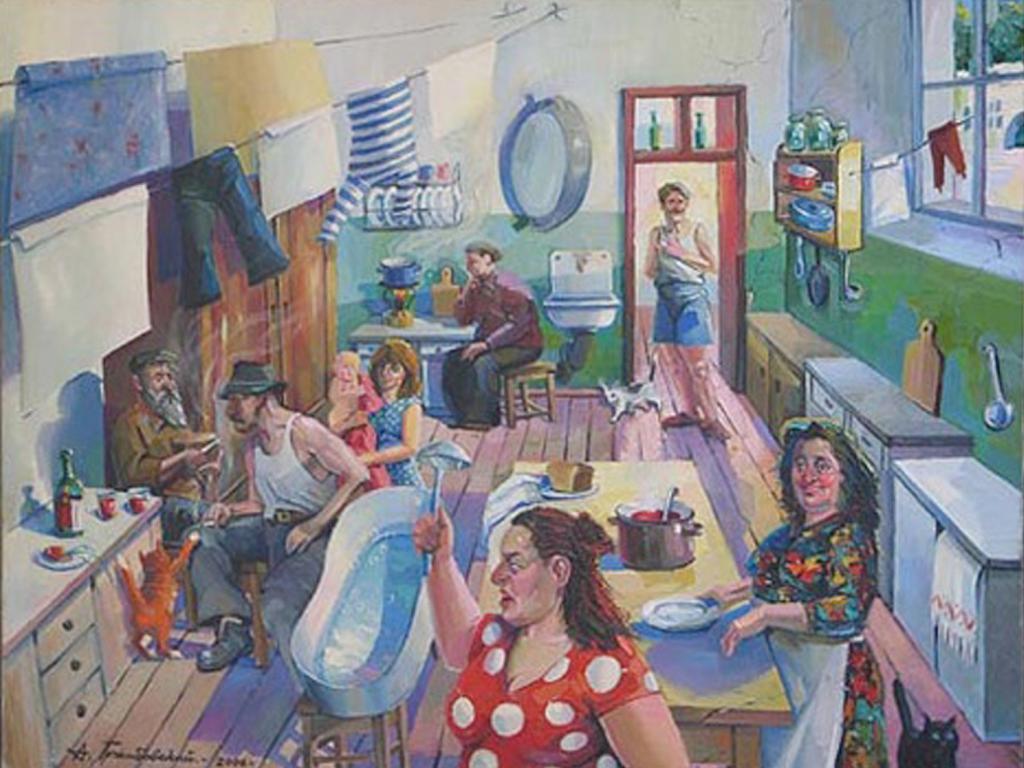Many people are still forced to live in a communal apartment. It is represented by housing, divided into several separate rooms, each of which is used by an individual owner or tenant. The rules for living in a communal apartment must be respected by all tenants. They determine the absence of conflicts between people, as well as the optimal living conditions in real estate.
What is a communal apartment?
A communal apartment is represented by a property, the rights to which are owned by several persons not related by family ties. There are several rooms that all residents can use, represented by a corridor, a kitchen and a bathroom.
To know about all the nuances of using such housing, you need to study the Housing Code. Communal apartment, the rules of which are contained in Art. 30 LCD, may have several owners or tenants. They themselves can live in real estate or rent it out, but in the latter case, this process must be obtained from other citizens.
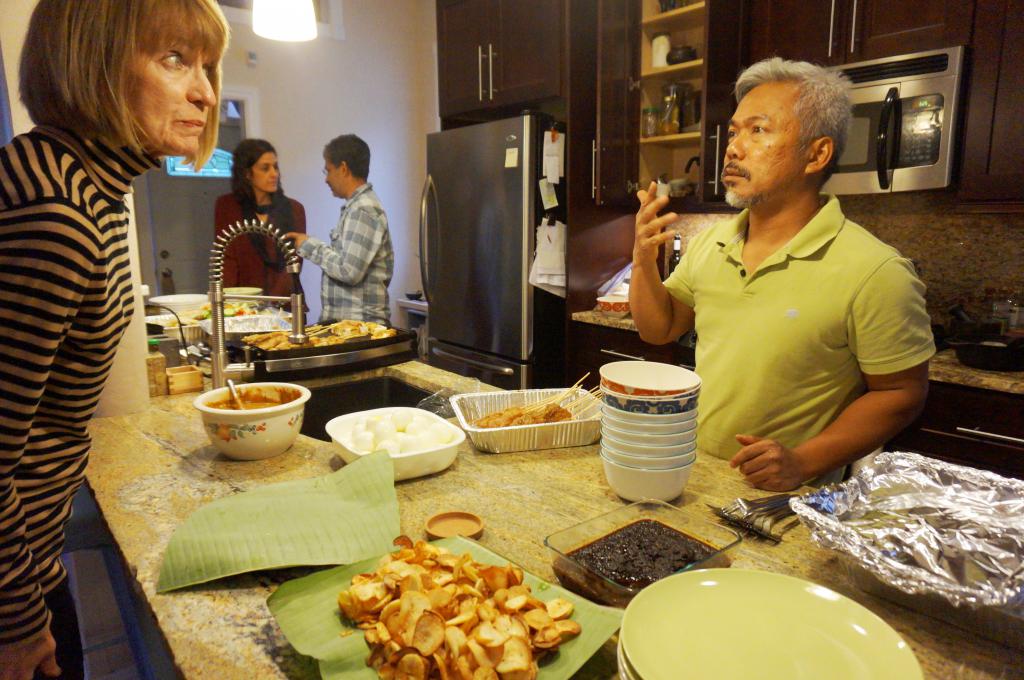
Rules for cohabitation
The rules of living in a communal apartment and the rights that all tenants have should be well studied by all citizens who are forced to live in such conditions.
Knowing about their obligations and rights, each person can influence other citizens in order to observe optimal living conditions and rules of living in a communal apartment. What is necessary to know? The requirements for the use of premises, for the payment of utilities, repair and other actions are taken into account.
Real Estate Management
The rules for living in a communal apartment are that tenants may have different rights in relation to the rooms. It depends on whether they use housing on the basis of the property of the property or social security agreement.
The owner has the rights:
- can register relatives in his room without the permission of other residents, but for the registration of unauthorized persons the consent of the other tenants will be required;
- give your property to other citizens;
- exchange a share for other objects;
- rent the room to other citizens when drawing up a lease.
Tenants can only lease used premises to other people.
Silence in the apartment
The rules for neighbors living in a communal apartment also apply to noise that may be created by residents in the course of various actions. It is non-compliance with optimal conditions for silence that causes constant disagreement between people who are forced to live on the same territory. Many people prefer to listen loudly to music or TV, which leads to a deterioration in relations between citizens.
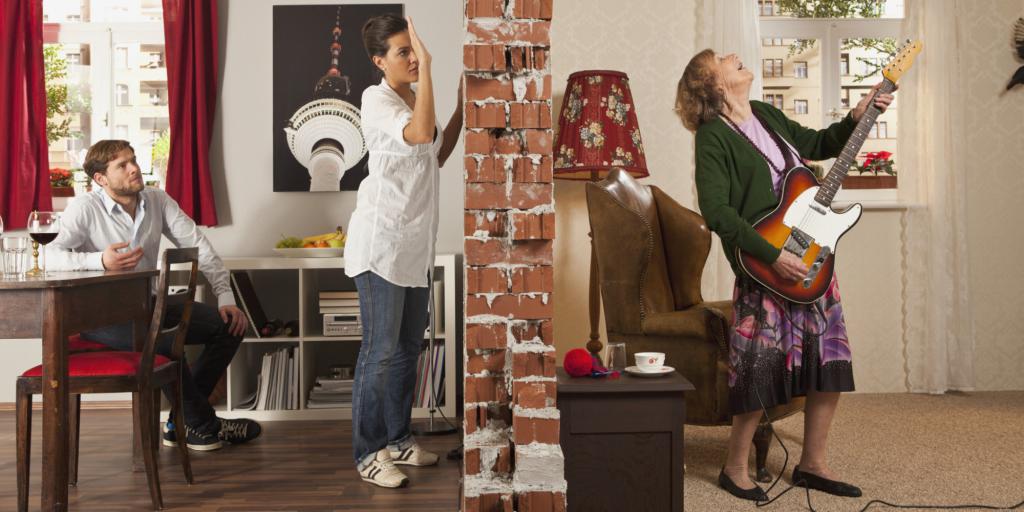
Claims for noise can be made only if there is evidence that loud people behave in the wrong time period, namely from 23:00 to 7:00. It is not allowed at this time to prevent other residents of the apartment from resting. If violations are detected, then citizens can contact the police or district police officers. Based on the application, an administrative offense case will be opened, so initially the violators are simply warned, and then they will be forced to pay significant fines.
Features of using shared rooms
The communal apartment includes the rules for living in a common area, presented by an entrance hall, a bathroom and a kitchen.All these premises can be used by each tenant of real estate, therefore it is not allowed to create any obstacles for this. The rooms cannot be divided, and often citizens make up a schedule, on the basis of which specific premises are used for a long time.
To prevent quarrels, it is advisable to follow these recommendations:
- burners are shared between all residents, which simplifies their use and care;
- if obstacles are created by one tenant to other citizens, this is a violation of the law, so police officers may be involved in a showdown;
- in the corridor several nightstands are installed, each of which belongs to a certain tenant;
- To schedule a bath, certain schedules are assigned to prevent conflicts.
For optimal use of the dwelling, all its inhabitants are required to know the rules of living in a communal apartment. The common areas of each tenant must be kept clean and tidy.
Room cleaning
The most difficult to live is a communal apartment. The rules of residence and common use of premises are regulated by special legislators acts. They also relate to how cleaning should be carried out in rooms that all residents can use.
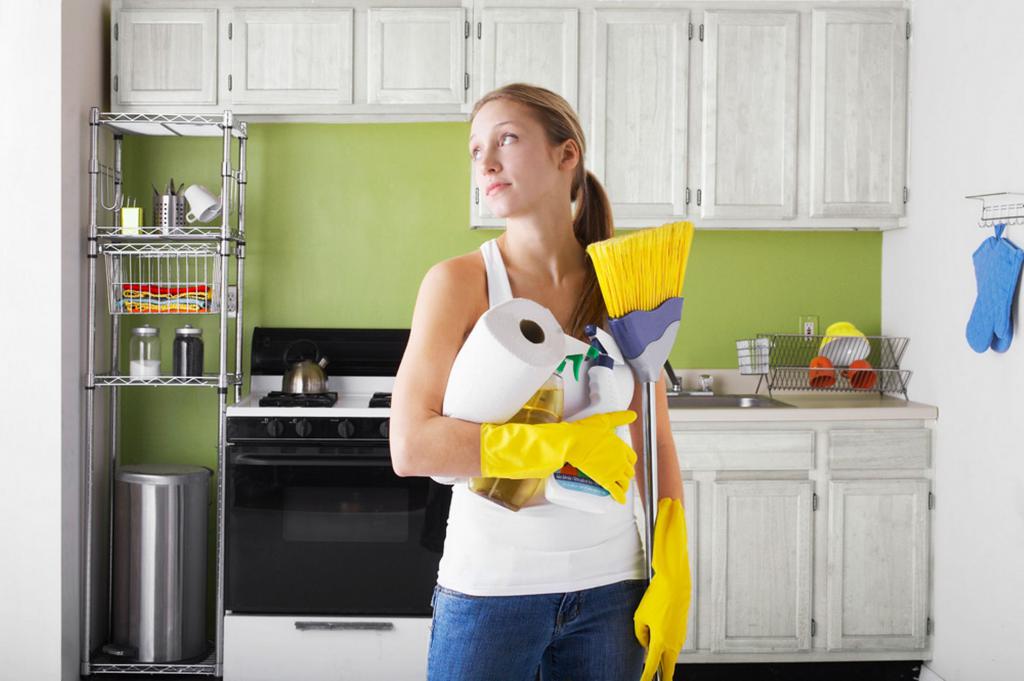
The tenants must jointly clean. For this, it is advisable to come to some kind of peace agreement in advance, otherwise it will be necessary to resolve this issue through the courts. If a particular tenant refuses to clean the apartment, then this can cause many negative consequences:
- Communal workers visiting SES;
- fines;
- deprivation of the right to reside in a communal apartment.
Other residents may sue the offender. The court can make a decision on the basis of which neighbors must be forced to clean the premises, and also material compensation can be exacted from them for the time when they did not fulfill their obligations.
The nuances of receiving guests
The rules for living in a communal apartment are in addition to how often and at what time guests can visit residents. The legislation lacks clear rules and requirements on this issue, but guests are free to use all common areas represented by a toilet or kitchen. Other tenants cannot create obstacles for this.
To prevent problems with neighbors, it is advisable to pre-negotiate with them when the guests will be invited, and also for how long they will stay in the apartment. They are not allowed to make noise, scream, listen loudly to music or perform other actions that will disturb the peace of other residents at night.
Can I register other people in the apartment?
There are frequent situations when illegal tenants regularly live in such real estate objects. Some people allow their friends or acquaintances to live in housing without prior registration, which is a violation of the law.
According to the LCD, such actions are prohibited, therefore, other residents after 11 pm can call the police to evict a stranger.
Native room owners can register without obtaining permission for this process. Tenants must not only agree on such a decision with the municipal authorities, but also obtain consent from all other residents.
Smoking in the apartment
A significant point for many people who are forced to live in the same apartment with other citizens is that there are problems with smoking. Some smokers prefer to smoke in their rooms or at all in common areas represented by a kitchen or bathroom.
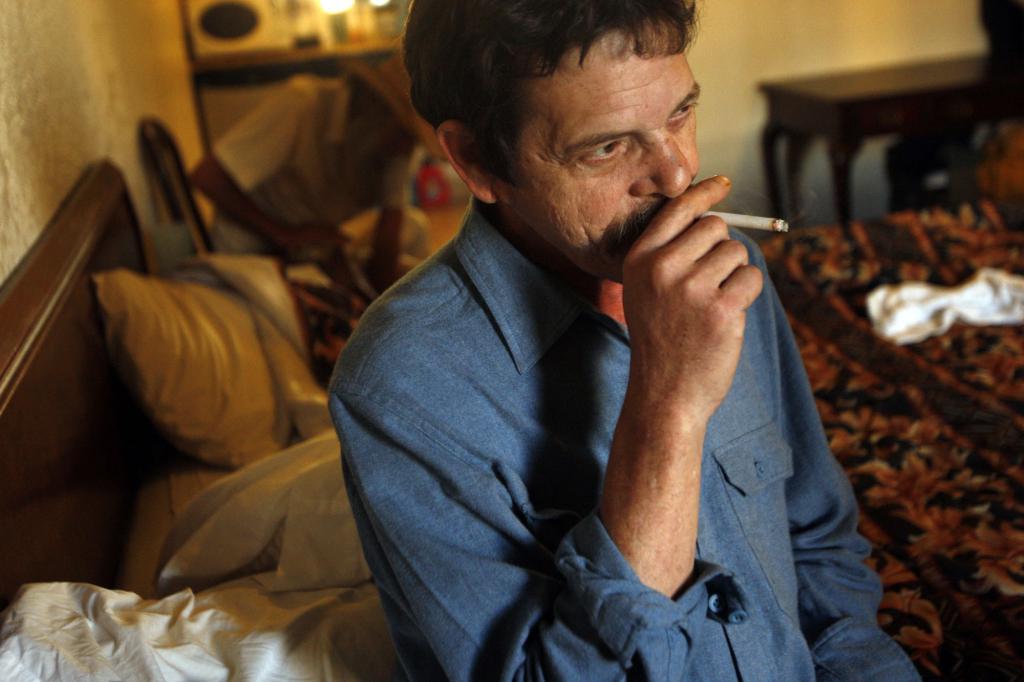
Such actions lead to the fact that all living quarters begin to be saturated with an unpleasant tobacco smell.It also causes significant damage to interior items or decoration materials.
It is practically impossible for citizens to ban smoking in an apartment, so it is advisable to try to negotiate with smokers in a peaceful way by asking them to smoke on the street or in the entrance.
Additionally, you can record the fact of smoking in the apartment in photographs or videos. They can be contacted by law enforcement or a court. But these services can only affect smokers with small fines. Therefore, such actions usually lead only to a deterioration of relations between neighbors.
Pet availability
The rules of living in a communal apartment are that people should take into account the interests of neighbors. This applies not only to cleaning, but also to the safety of things in public places. Therefore, restrictions apply even to pets.
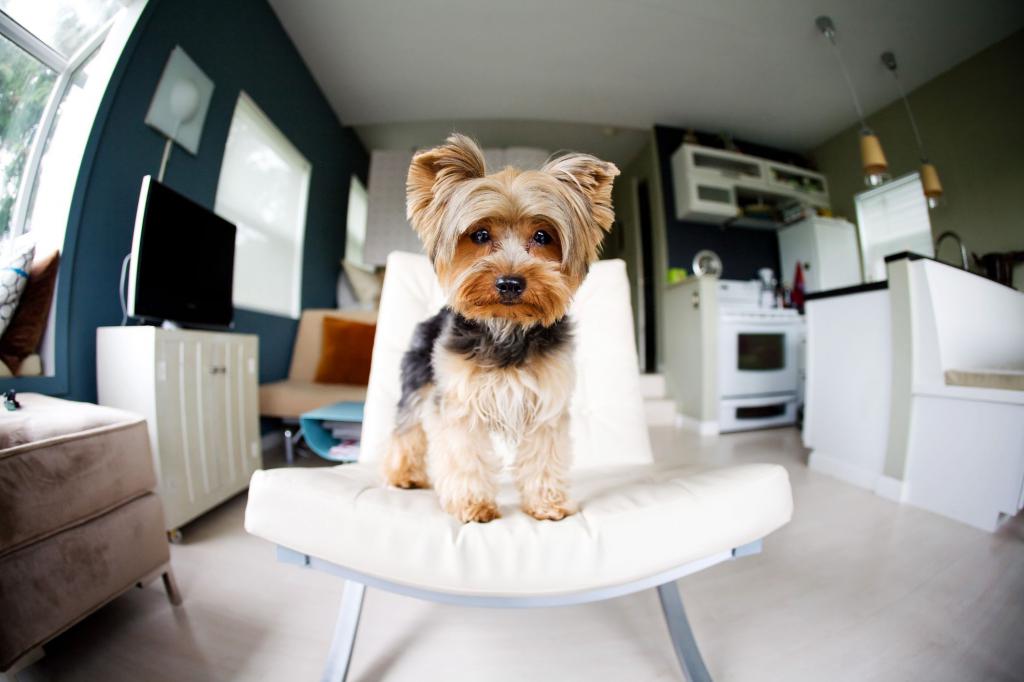
Taking a pet into a communal apartment is allowed only with the permission of the neighbors, who are ready to put up with noise, an unpleasant smell and even wounded furniture. In a different situation, it is forbidden to keep animals. Restrictions usually do not apply to small rodents, such as rats or hamsters, since they constantly live in cages, so they can’t get into public places in any way.
The nuances of payment for housing services
Regardless of the number of residents in the communal apartment, it is necessary to regularly pay utility bills based on the data contained in the receipts. This takes into account the features:
- heating, telephone, electricity and gas are paid on the basis of meter readings, and it is also allowed to draw up an agreement between residents;
- if there is no agreement between citizens, then payment is made by dividing all the funds between them;
- if one of the residents refuses to deposit funds, this is the basis for writing an application to law enforcement agencies, as other citizens should not pay for housing and communal services for him.
The main nuances of living in a communal apartment contains the Housing Code. A communal apartment, the rules of which are numerous, must be kept in optimal condition. All receipts must be paid on time, and if one of the tenants does not fulfill his obligations, then he can be forcibly evicted.
Features of the repair
In their rooms, citizens can carry out repairs at any convenient time. If the appearance of the corridor or other premises used by all residents is in poor condition, a decision is made on whether repairs are necessary.

The process is carried out either by the citizens themselves, or with the help of invited specialists. For the implementation of the procedure, an expenditure estimate is formed. The resulting amount of expenses is distributed among all residents, for which their share in the communal apartment is taken into account.
Often, there are serious disputes between citizens regarding the choice of finishing materials, the time of repair or the cost of purchased items. Some issues cannot be resolved even through a court, so the house committee has to intervene.
Rules for redevelopment
The basic rules for living in a communal apartment indicate that redevelopment work in such housing is carried out under the same conditions as in other apartments. This requires:
- obtain consent from all tenants for this process, and it is necessarily formed in writing;
- a detailed redevelopment project is being drawn up, and this should be addressed to proven and reliable design organizations;
- for redevelopment it is necessary to draw up the necessary permits from the SES, the fire inspectorate and other institutions.
Even if only one of the residents is against redevelopment, this will be the basis for refusing to receive permission for this process from the administration.
Who can claim a vacant room?
Landlords who live in rooms under a social tenancy agreement can move to other housing at any time. The vacated room is transferred back to the municipality, after which it can be provided:
- low-income families;
- people in line for improved housing conditions;
- persons wishing to purchase this property.
The remaining tenants will be able to get an apartment only when it is bought out.
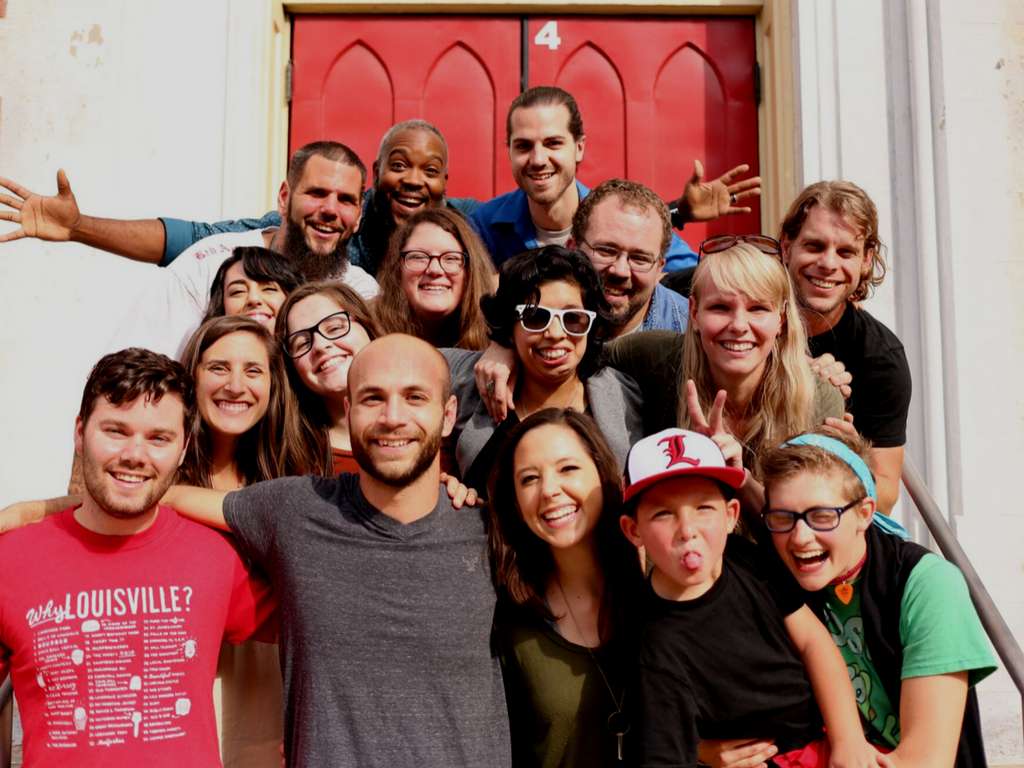
The nuances of privatization
Privatization is represented by a special procedure for transforming the form of ownership, on the basis of which housing is transferred from municipal property to private. To complete this process, you must obtain consent from other residents.
In a communal apartment you can privatize a separate isolated room, and it is also allowed to use this method for several rooms. After the process, a special property certificate is issued to the owner.
The rules for living in a communal apartment in the Republic of Belarus are similar to the conditions existing in the Russian Federation.
The requirements are the same for the owners of premises and for tenants. The only difference is that owners can register relatives in their room without the consent of other residents and the municipality. For employers, agreement is required to complete this process.
Conclusion
Thus, the rules of living in a communal apartment of tenants are numerous. They are related to room owners or tenants. They concern the behavior of people, the features of the use of common areas, as well as the repair and payment of utilities.
Violation of these rules may constitute a ground for other residents to contact law enforcement agencies or a court. The result may be the imposition of significant fines or even the possibility of eviction from real estate.
